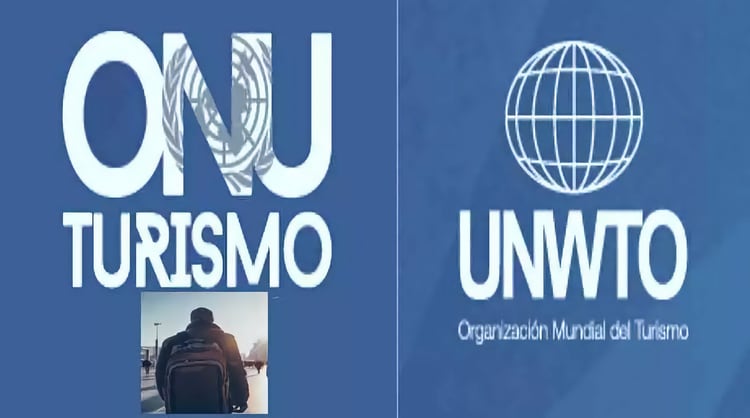The succession process at the World Tourism Organization (UN Tourism), centered in Spain, has been tainted by political and media interests that undermine the credibility of the organization and the sector it represents.
Far from becoming a technical and transparent contest, the election of the next UN Tourism Secretary-General has turned into a process marred by smear campaigns, political maneuvering, and media strategies. The vote, to be held in May in Segovia and ratified in November in Riyadh, involves far more than the appointment of a new institutional leader: it calls into question the image of tourism as a driver of development, understanding, and peace.
Over recent months, various media outlets—both general and specialized, such as eturbonews—have contributed to muddying the pre-election climate, often aligning explicitly with one or another candidacy. In particular, the current Secretary-General, Zurab Pololikashvili, has been the target of attacks in publications linking him—without any conclusive evidence—to controversies surrounding Spanish President Pedro Sánchez’s government.
Some of these publications have suggested the existence of undeclared properties in the Dominican Republic and Uruguay, and an alleged connection between UNWTO agreements with FC Barcelona and the Spanish president’s wife, Begoña Gómez. As part of a smear campaign against the current Secretary-General, none of these claims have been supported by verifiable documentation.
Transparency at UN Tourism
Pololikashvili, for his part, has defended the transparency of his administration by citing external audits carried out by firms such as KPMG and by official agencies from Spain and Egypt. These audits are publicly available on the organization’s website.
UN Tourism has consistently reaffirmed its commitment to transparency as a key element in fostering global tourism development. Since Zurab Pololikashvili took office as Secretary-General in 2018, audits have become a cornerstone of the organization’s strategy to ensure clarity and accountability. Upon starting his term, the Secretary-General commissioned the first independent audit, carried out by KPMG.
Since then, numerous monitoring and oversight services have been conducted. For the first time, internal audit services were implemented, outsourced to the Office of Internal Oversight Services (OIOS), the official internal oversight body of the United Nations. In December 2019, UN Tourism signed an agreement to conduct triennial audit plans. Following these guidelines, OIOS conducted its first audit in 2021 (Project Management), a second in 2023 (Human Resources), and the third audit (Procurement) will begin at the end of 2025.
Additionally, UN Tourism is one of the 28 participating agencies of the Joint Inspection Unit (JIU), the only independent external oversight body in the UN system mandated to conduct system-wide evaluations, inspections, and investigations. The Secretary-General reports annually to the Executive Council on compliance with JIU and OIOS recommendations, thereby promoting the application of high UN standards.
As for external audits, the audit bodies are appointed by the General Assembly. From 2018 to 2023, they were conducted by Spain, through the State General Comptroller’s Office (IGAE). Subsequently, in 2024 and 2025, the UN Tourism Executive Council tasked the Egyptian government with these services, through the official Accountability State Authority.
These external audits have reviewed and confirmed the financial status of UN Tourism and have been shared with the organization’s governing bodies as well as published openly on its website.
The Guevara Alternative: Business Lobby Backing and Internal Challenges
On the other side, Mexican candidate Gloria Guevara, who has launched an aggressive media campaign, enjoys strong support from the international private sector. Former Secretary of Tourism of Mexico under conservative President Felipe Calderón and former President of the World Travel & Tourism Council (WTTC), Guevara has positioned herself as an advisor to Saudi Arabia.
Mexico’s current president, Claudia Sheinbaum, has expressed her support for Guevara’s candidacy as part of a foreign policy focused on promoting female leadership in international organizations. However, this raises questions about the necessary balance between professional merit and gender representation in such processes.
From a technical standpoint, Guevara has been criticized for her role in creating the Safe Travels stamp during the pandemic and for her closeness to private business interests. In a recent interview, she was asked about the sustainability of UN Tourism’s Affiliate Members—many of whom are outside the WTTC ecosystem—and the need to improve the organization’s statistical systems, which currently rely heavily on ministry surveys with questionable methodological rigor.
Moreover, Guevara’s candidacy is formally advised by former Kenyan Tourism Minister Najib Balala, who was arrested on corruption charges. Balala and other former officials were accused of inflating the cost of a project to build a tourism school.
Mexico has also made broader moves to secure high-ranking UN positions. Alongside Guevara’s candidacy at UN Tourism, Gabriela Ramos is running for UNESCO, and according to diplomatic sources, Mexico is also expected to pursue the succession of António Guterres as UN Secretary-General in New York.
An Opportunity at Risk
Ultimately, the current campaign for UN Tourism leadership has exposed the institutional fragility of the organization and the increasing politicization of a process that should be based on merit, public management capabilities, and multilateral vision.
Spain, as the historical headquarters of UNWTO, plays a central role in this process. Therefore, transparency, fairness, and commitment to the public interest must be the non-negotiable foundations of the debate.
Tourism, as an economic activity and a tool for global integration, cannot afford to be caught in a web of blocs, suspicions, and favoritism. It is time for the 35 electors to rise to the occasion and choose someone truly capable of leading the sector’s future based on technical competence, public ethics, and international consensus.
This article has been prepared using, among its sources of information, the column by Sergio Antonio Herrera on Portal de América. We recommend reading it, given its relevance, at the following link: https://www.portaldeamerica.com/index.php/columnistas/sergio-antonio-herrera/item/36963-pololikashvili-o-guevara-el-o-ella-el-bombardeado-o-la-ungida






